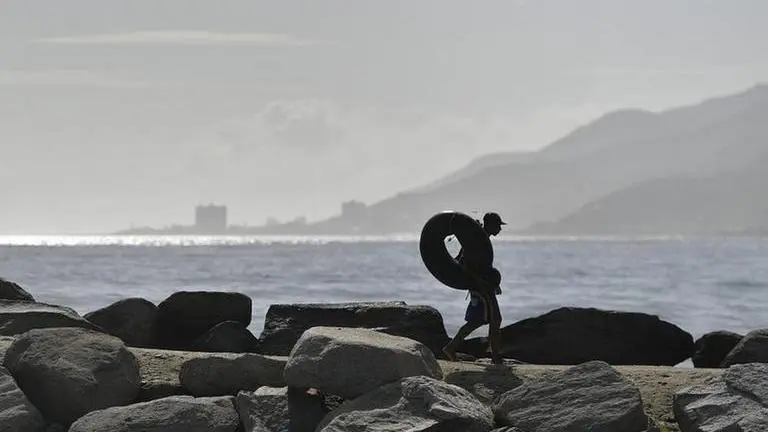Updated 16 August 2020 at 06:20 IST
Venezuelans turn to high sea on tubes to fishing
With makeshifts rafts made out of inner tire tubes and using plastic plates as paddles, Venezuelans in the coastal state of Guaira ventured out to sea on Friday, fishing for their daily sustenance.
- World News
- 2 min read

With makeshifts rafts made out of inner tire tubes and using plastic plates as paddles, Venezuelans in the coastal state of Guaira ventured out to sea on Friday, fishing for their daily sustenance.
Venezuelans like Jean Carlos Almeida turned to fishing for survival after the pandemic shut down its already faltering economy.
Their biggest fear is a fish hook puncturing the inner tube that keeps them afloat far from shore, but they also fear sharks grabbing their catch and the current pulling them further out to sea.
Almedia is a bricklayer by trade, but said that line of work dried up, leaving him with few other options than to try his hand at fishing.
Advertisement
"Who buys now a sack of cement for 10 dollars? And if they buy the sack of cement, they won't have enough to pay you for the work. So what do we do? It's easier for us to go fishing," Almedia said.
Survival during the coronavirus pandemic has forced a small but growing number of people in the coastal town of La Guaira, just a few minutes from the capital of Caracas, to brave the sea for a living.
Advertisement
Almeida, 35, and his fishing partner Eric Mendez, 40, worked as bricklayers.
Others like them who paddle out in small groups up to 5 miles (8 kilometers) lost jobs in restaurants and shops catering to beach-goers.
All the beaches are closed, but the workers still have hungry children at home in their hillside neighborhoods.
"We too have a right to food. If we don't have a job where do we go? To what God gave us: the sea. We have to go fishing," Mendez said.
The coronavirus hit Venezuela in mid-March and the government ordered most businesses closed.
The new coronavirus has steadily spread in the five months since. Officials say it's killed fewer than 300 and sickened roughly 31,000.
Almeida and Mendez consider themselves experienced after a couple months of practice entering the water on inner tubes. They make plastic hand paddles and wear flippers on their feet.
They vanish quickly from sight for anyone watching from the shore.
After several hours, they paddle back to dry land, against the currents and unload their catch.
It's enough to feed their families and share some with neighbors for a week - and sell the rest for a few dollars.
Published By : Associated Press Television News
Published On: 16 August 2020 at 06:20 IST
